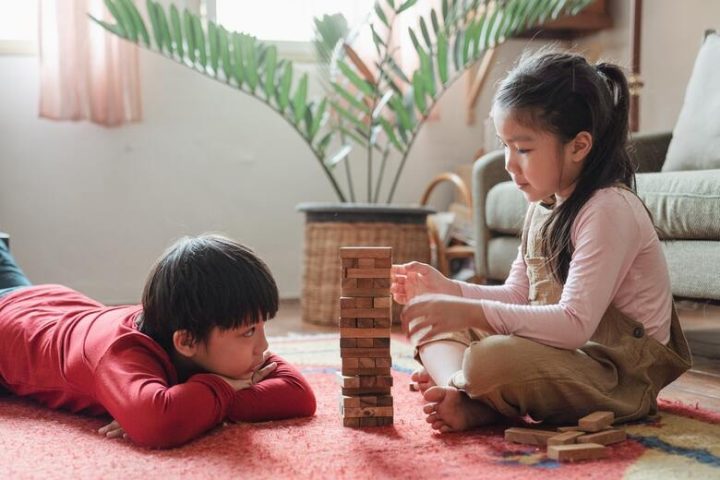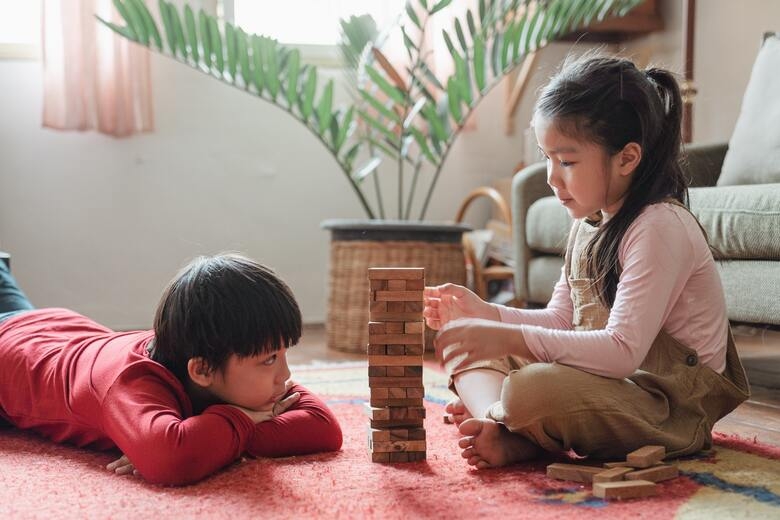For a lot of families, every child is a blessing, including children with special needs. That said, there’s no denying the fact that the extra care and attention that a special needs child requires from the parents often takes time away from the other non-special needs children. In this situation, especially if the children are on the younger side, there may be some negative impact on the sibling dynamic, where one or more children feel resentment or are left out to fend for themselves while mom and dad take care of their special needs brother or sister.
In a place like Singapore, where many parents already struggle with the day-to-day responsibilities of work and home, how can parents foster more positive sibling relationships that thrive despite the everyday challenges of balancing the needs of everyone in the family? Let this article provide suggestions to help your family create a nurturing environment where all your children can grow and flourish together.
- Have Open Communication
Communication is the cornerstone of understanding and empathy. Engage your non-special needs child in age-appropriate conversations about the special condition of their sibling. Why are they not in regular school? Why do they need a special needs teacher? What is their condition? How are they different from other kids?
Furthermore, provides clear and honest answers that dispel misconceptions. In addressing their curiosity, you can foster a sense of inclusion. This way, your non-special needs child can view their sibling’s condition with compassion rather than confusion.
- Set Aside Individual Time
Amid a bustling household, carve out precious one-on-one moments with each child. These moments needn’t be grand gestures—a quiet walk, shared stories, or a baking session can create lifelong memories. What’s important is to affirm each child’s importance in your life by dedicating quality time to each of them separately.
- Initiate Inclusive Family Activities
Forge stronger bonds by designing family activities that accommodate everyone’s abilities and interests. Whether it’s a picnic, a movie night, or a creative craft session, inclusive activities ensure that every sibling feels valued and involved. After all, the memories forged during these times will become a tapestry of shared experiences that strengthen sibling connections.
- Establish a Sibling Support System
Siblings are natural allies in the journey of life. Encourage them to support each other through challenges. For instance, you can share stories—fictional or otherwise—of siblings aiding one another in overcoming obstacles, highlighting the strength that comes from standing together. In doing so, you’ll be helping foster a lifelong support network that your children can rely on even after each one grows up and creates their own families.
- Teach About Embracing Differences
Instil in your children that differences are something to be celebrated rather than feared. As such, they should celebrate your family’s unique diversity. Moreover, communicate openly about how everyone’s strengths contribute to the family’s collective growth. Ultimately, this cultivates an environment of acceptance where each sibling can thrive as their authentic selves.
- Emphasise Teamwork and Shared Responsibility
It’s important to involve all your children in caregiving tasks and household chores—not because you need their help but because it builds teamwork and a sense of responsibility within the family. Best of all, sharing in the everyday tasks of caring for a brother or sister who’s in need of special care builds empathy towards their plight.
You can assign tasks according to each child’s capabilities and age, and you can also encourage collaboration. Through these shared responsibilities, your children will learn the importance of working together for the greater good.
- Seek Parental Empowerment
When one child requires additional care, balancing attention and support among siblings can become challenging. That’s why you should remember that each child’s needs are unique, and you should seek a balance that ensures equity rather than equality. What’s more, acknowledge your efforts and know that it’s alright to seek support when needed—you’re doing your best for all your children.
- Building Emotional Intelligence
Having a child with special needs is not all about challenges and obstacles. It also presents an opportunity to foster emotional growth. Every day, the struggle your other children may face results in grit and determination, as well as emotional development and maturity. Through understanding and empathy, they’ll not only deepen their sibling connections but also cultivate emotional resilience that serves them well in life.
- Celebrate Achievements
Whether big or small, celebrating milestones and accomplishments reinforces the idea that each child’s achievements are valued. You should therefore make it a point to applaud their efforts and to encourage them to cheer for one another’s successes. This will not only help boost their self-esteem, but it will also strengthen the bonds of siblinghood.
- Seek External Support
Engaging with support groups and communities that understand your family’s unique situation can provide valuable insights and resources. Connect with local organisations and online platforms tailored to Singaporean parents. These networks can offer valuable advice and guidance that could not just help improve your special child’s quality of life but also your family’s experience. Most of all, the sense of belonging to a community facing similar challenges is priceless.
As parents, nurturing your children’s relationship with each other is both a challenge and an opportunity. Through the suggestions put forward above, your children can develop a strong foundation to build up their relationships even as they grow into adulthood. Ultimately, it’s not about being a brother or a sister’s keeper but being each other’s pillar of support. While special needs children may be limited in their abilities, the lessons in empathy, resiliency, and unconditional love they bring are immeasurable.






















 10 Best House Cleaning Services in Singapore: 2025 Guide
10 Best House Cleaning Services in Singapore: 2025 Guide  10 Best Maid Agencies in Singapore 2025 for an Easy Helper Find
10 Best Maid Agencies in Singapore 2025 for an Easy Helper Find  10 Best Aircon Services in Singapore: 2025 Guide
10 Best Aircon Services in Singapore: 2025 Guide  10 Best House Movers in Singapore: 2025 Guide
10 Best House Movers in Singapore: 2025 Guide  The 7 Most Romantic Restaurants in Singapore 2025
The 7 Most Romantic Restaurants in Singapore 2025  5 Best Sofa Cleaning Services in Singapore 2025
5 Best Sofa Cleaning Services in Singapore 2025  Illuminate Spring with Blooms across Lendlease malls
Illuminate Spring with Blooms across Lendlease malls  2XU Compression Run 2025 Singapore
2XU Compression Run 2025 Singapore  Solo Travel and Mental Health: Discovering Wellness Through Independence and Adventure
Solo Travel and Mental Health: Discovering Wellness Through Independence and Adventure  5 Ways to Improve Your Business’s Energy Efficiency This Coming 2025
5 Ways to Improve Your Business’s Energy Efficiency This Coming 2025  7 Types of Smart Road Solutions That Help Improve Traffic Efficiency and Safety
7 Types of Smart Road Solutions That Help Improve Traffic Efficiency and Safety  7 Best Seafood Restaurants in Singapore (2025) to Drool over
7 Best Seafood Restaurants in Singapore (2025) to Drool over  5 Best International Buffets in Singapore to Eat Like A King
5 Best International Buffets in Singapore to Eat Like A King  5 Best Zi Char Places in Singapore for That Comfort Food
5 Best Zi Char Places in Singapore for That Comfort Food  Top Weekend Getaway Options From Singapore
Top Weekend Getaway Options From Singapore  10 Best Places To Propose In Singapore Which Guarantee Her To Say Yes
10 Best Places To Propose In Singapore Which Guarantee Her To Say Yes  The 5 Best Indoor Playgrounds for Kids in Singapore 2025
The 5 Best Indoor Playgrounds for Kids in Singapore 2025